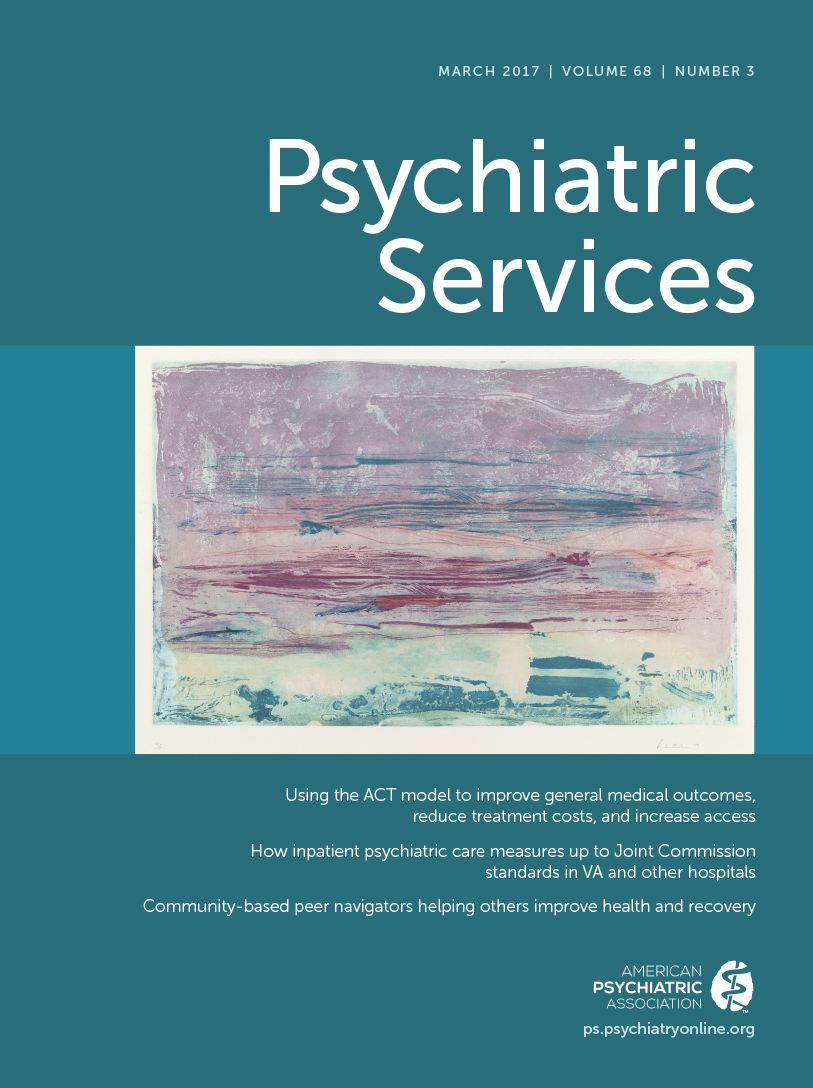Using Peer Navigators to Address the Integrated Health Care Needs of Homeless African Americans With Serious Mental Illness
Abstract
Objective:
The study examined the impact of a peer navigator program (PNP) developed by a community-based participatory research team and used with a group of African Americans with serious mental illness who were homeless.
Methods:
Sixty-seven research participants were randomly assigned to receive PNP or treatment as usual (control) for one year. Data on general health and mental health, recovery, and quality of life were collected at baseline and at four, eight, and 12 months.
Results:
Findings from group × trial analyses of variance of omnibus measures of the four constructs showed significant impact over the year for participants in PNP compared with those in the control group, with analyses showing small to moderate effect sizes: general health status (η2=.24), psychological experience of physical health (η2=.42), recovery (η2=.36), and quality of life (η2=.14). These differences emerged even though both groups showed significant reductions in homelessness and increases in insurance coverage.
Conclusions:
Implications for improving in-the-field health care for this population are discussed. Whether these results occurred because navigators were peers per se needs to be examined in future research.




